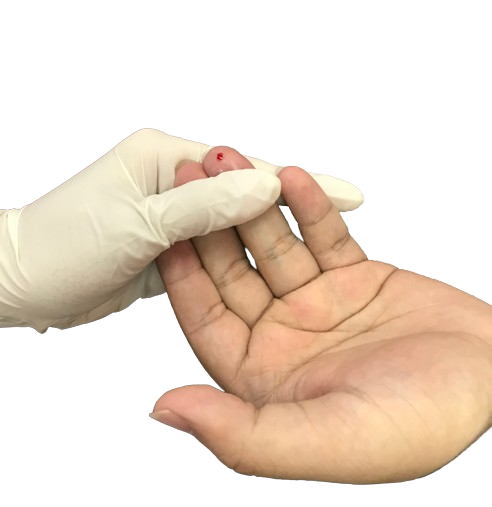Wound Care In Diabetes
Wound care is carefully cleansing, disinfecting, and treating wounds in order to facilitate healing and avoid infection for the best possible recovery.
Wound Care in Diabetes
Wound care in diabetes in Madhapur is particularly important for individuals with diabetes due to the increased risk of complications associated with poor wound healing and a higher susceptibility to infections. Diabetes can lead to neuropathy (nerve damage) and vascular ischemia, which can result in reduced sensation and blood flow to the extremities. As a result, even minor wounds in individuals with diabetes may take longer time to heal and have a higher risk of uncontrolled infection. Here is our speciality to deal with wound care and some specific considerations for wound care in diabetes:
- Experienced
- Focused
- High-End Facility
- Pain Regenerative Therapies
- Supportive Team
- Emergency Care
- Special Diagnosis
- Swelling Regenerative Therapies


- Individuals with diabetes should regularly inspect their feet and other vulnerable areas for any signs of cuts, blisters, or sores. Since diabetic neuropathy can reduce sensation, regular visual checks are essential.
- Clean the wound with mild soap and lukewarm water. Avoid hot water, as individuals with diabetes may have reduced sensitivity to temperature.
- Gently pat the wound dry with a clean, soft towel.
- Avoid using harsh antiseptics, such as hydrogen peroxide or iodine, as they can delay healing and cause irritation.
- Apply a moisturizing cream to keep the skin around the wound hydrated. However, avoid applying moisturizer directly to an open wound.
- If the wound is on the weight bearing area of foot, minimize pressure and weight-bearing on the affected foot to prevent further trauma.
- Use sterile dressings appropriate for the type and size of the wound. Consult with a healthcare professional to determine the most suitable dressing.
- Monitor for signs of infection, such as redness, swelling, increased pain, or discharge. If these symptoms occur, seek medical attention promptly.
- If prescribed by a healthcare professional, use topical or systemic antibiotics to prevent or treat infections.
- Maintain adequate control of blood glucose levels, as elevated levels can impair wound healing. Follow the diabetes management plan provided by healthcare providers.
- Individuals with diabetes should have regular check-ups with healthcare providers to monitor and manage any existing wounds or potential issues.
- Proper foot care is crucial for individuals with diabetes. This includes wearing comfortable and properly fitting shoes, regular trimming of toenails carefully, and avoiding walking barefoot.
- Consult a healthcare professional for any wounds that are deep, infected, or slow to heal. Timely intervention can prevent complications.
Note: People with diabetes should work closely with their healthcare team to develop an individualized plan for wound care and diabetes management. Regular monitoring, good hygiene practices, and prompt medical attention are essential components of effective wound care in individuals with diabetes.
